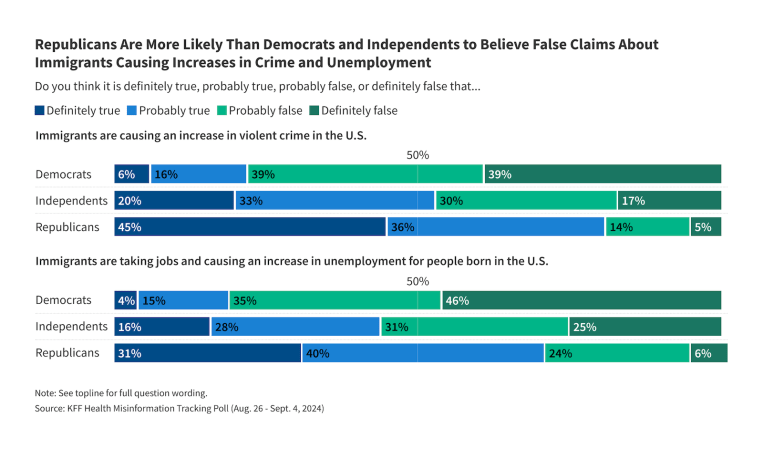Springfield, Ohio: How Candidates Amplify Misinformation
 Usually I worry about amplifying misinformation by calling attention to it. But when it comes to misinformation about immigrants—and most recently Haitian immigrants in Springfield, Ohio—it can’t be elevated much more than it already has been by the Republican candidates for Vice President and President and subsequent media coverage of their remarks. As if acknowledging the role politicians can play magnifying misinformation, vice presidential candidate JD Vance told CNN: “I have to create stories so the media pays attention.” In this case, sharing a few facts won’t elevate the misinformation further and might help dispel myths.
Usually I worry about amplifying misinformation by calling attention to it. But when it comes to misinformation about immigrants—and most recently Haitian immigrants in Springfield, Ohio—it can’t be elevated much more than it already has been by the Republican candidates for Vice President and President and subsequent media coverage of their remarks. As if acknowledging the role politicians can play magnifying misinformation, vice presidential candidate JD Vance told CNN: “I have to create stories so the media pays attention.” In this case, sharing a few facts won’t elevate the misinformation further and might help dispel myths.
Black immigrants make up only 8% of all adult immigrants. Nearly half (47%) of Black immigrants—or about 4% of immigrants overall—are from the Caribbean, while about four in 10 (43%) are from sub-Saharan Africa. Most Black immigrants are U.S. citizens (68%), while one in five (21%) has a valid visa or green card. Just about one in 10 (8%) are likely undocumented. There are about 700,000 Haitian immigrants in the U.S. and by the way, around 100,000 of them work in the health care sector.
Overwhelmingly, as with all waves of immigrants before them, Black immigrants come to the United States to improve their lives (87%) and their children’s life chances (80%). To accomplish that, most are working (76%). In the case of Haiti, of course, some are fleeing chaos and political instability and have been granted Temporary Protected Status.
They face all the challenges immigrants have always faced in the U.S. Half of Black immigrants (56%) say they face discrimination or unfair treatment at work, but Black immigrants can experience the double trouble of racism and anti-immigrant sentiment.
Politicians have long appealed to Americans who feel alienated or left behind and can be made to feel threatened by newcomers. In what social scientists call “limited empirical validation,” one anecdote or two can be used to validate a stereotype even if it is an outlier. We see that most sharply in the claim, based on a few incidents, that immigrants are widely committing murder.
As a KFF Health Misinformation Tracking Poll released today shows, the strategy is particularly effective with the Republican base. Republicans are much more likely than Democrats and substantially more likely than Independents to believe that immigrants are causing violent crime in the U.S. or that they are taking away jobs.
Most adults (80%) have heard the claim that immigrants cause violence. It’s the ultimate example of amplification of misinformation by political figures based on the intentional use of anecdotes. And it creates a dilemma for news coverage of this and similar examples of misinformation perpetrated by political figures: whether to cover it because it’s news and fact check it in the process, knowing that spreads it much further, including causing further rounds of social media attention; or ignore it knowing that then it will remain mostly in the echo chamber where it began.
There’s likely no choice when presidential candidates spread false information but to cover it and correct the lies in the process, but there are choices to be made about how it’s done. Giving free media to misinformation by broadcasting endless clips of candidates repeating falsehoods and misinformation may do more harm than good, even if they are followed by fact checking. Just ask the Haitians in Springfield, Ohio how they feel about it.

